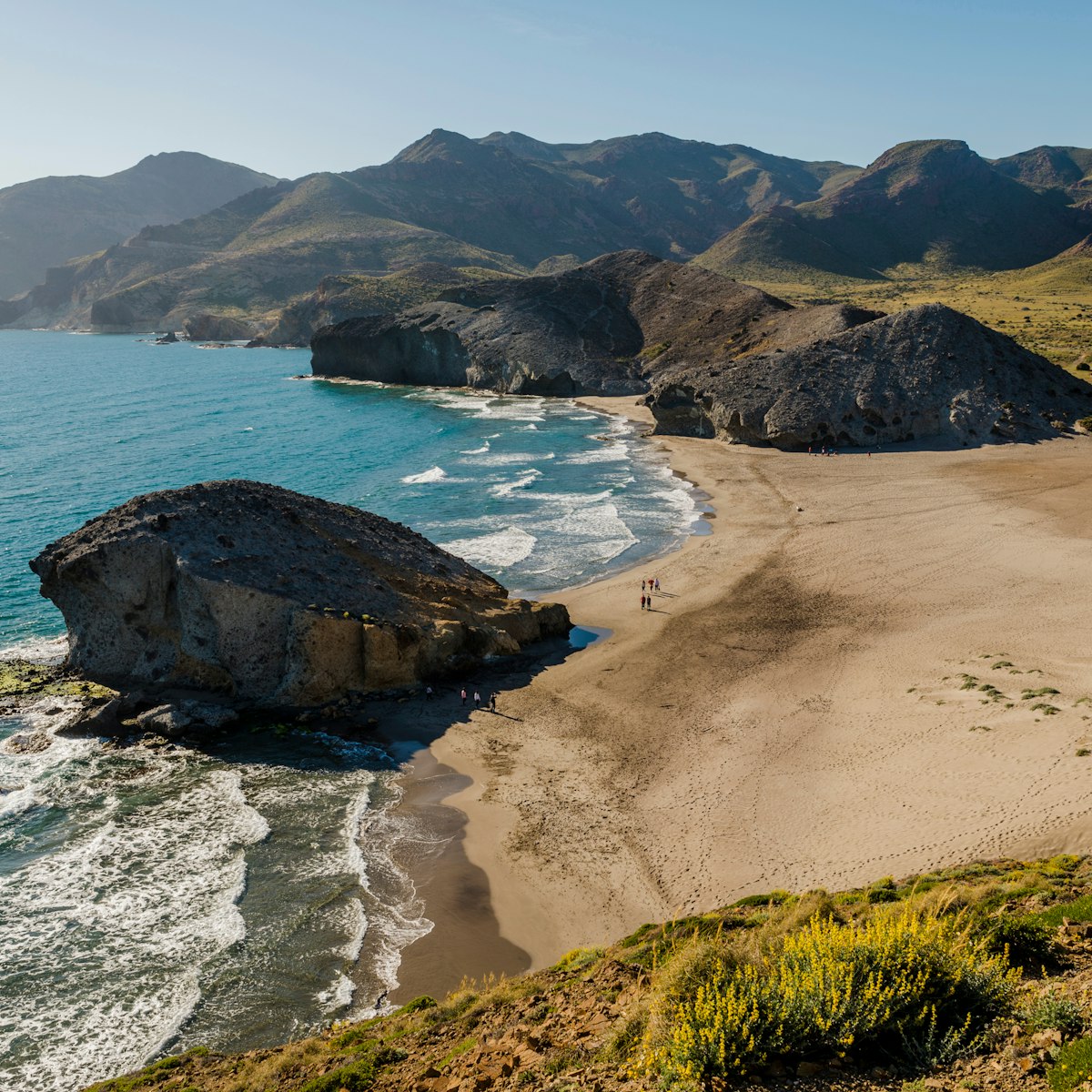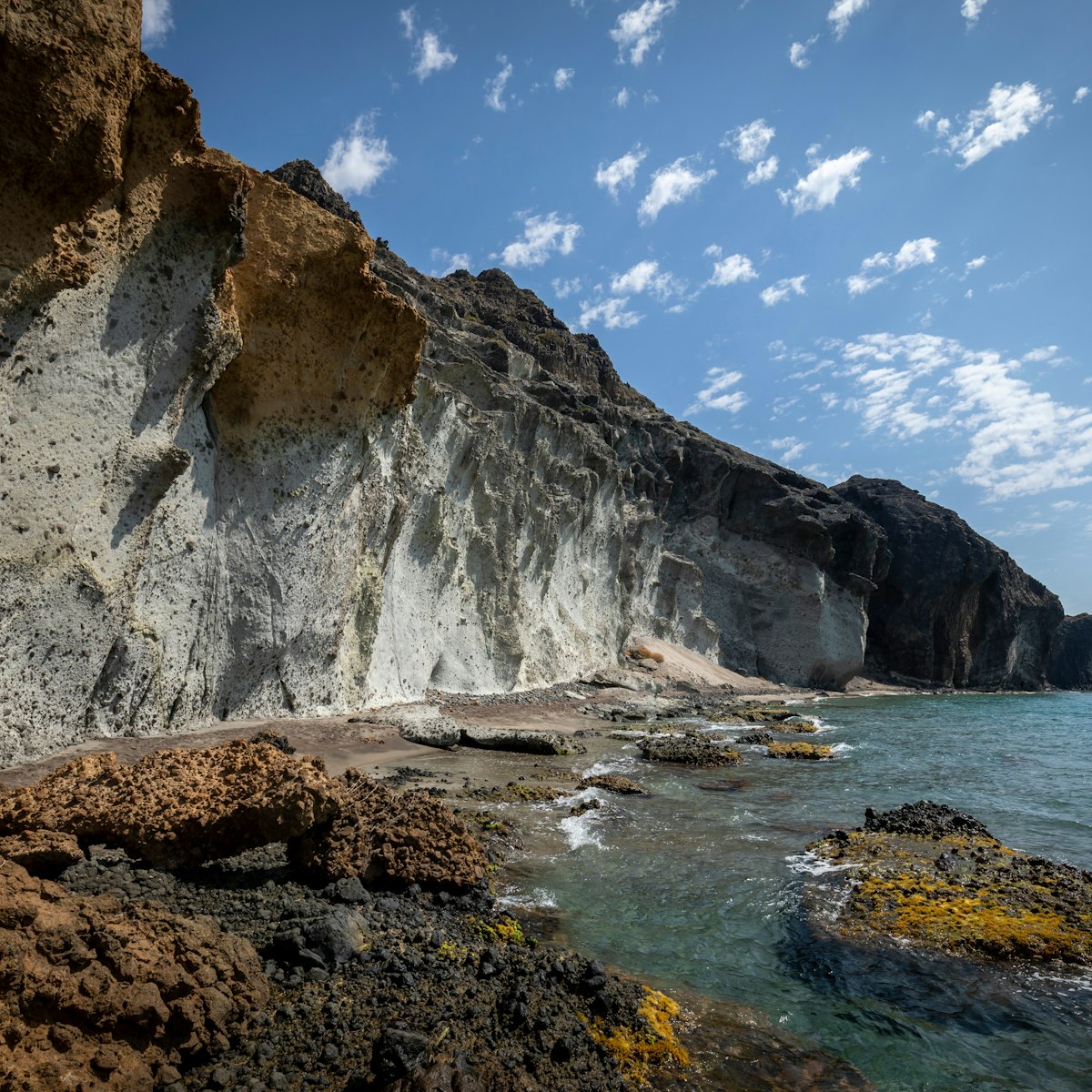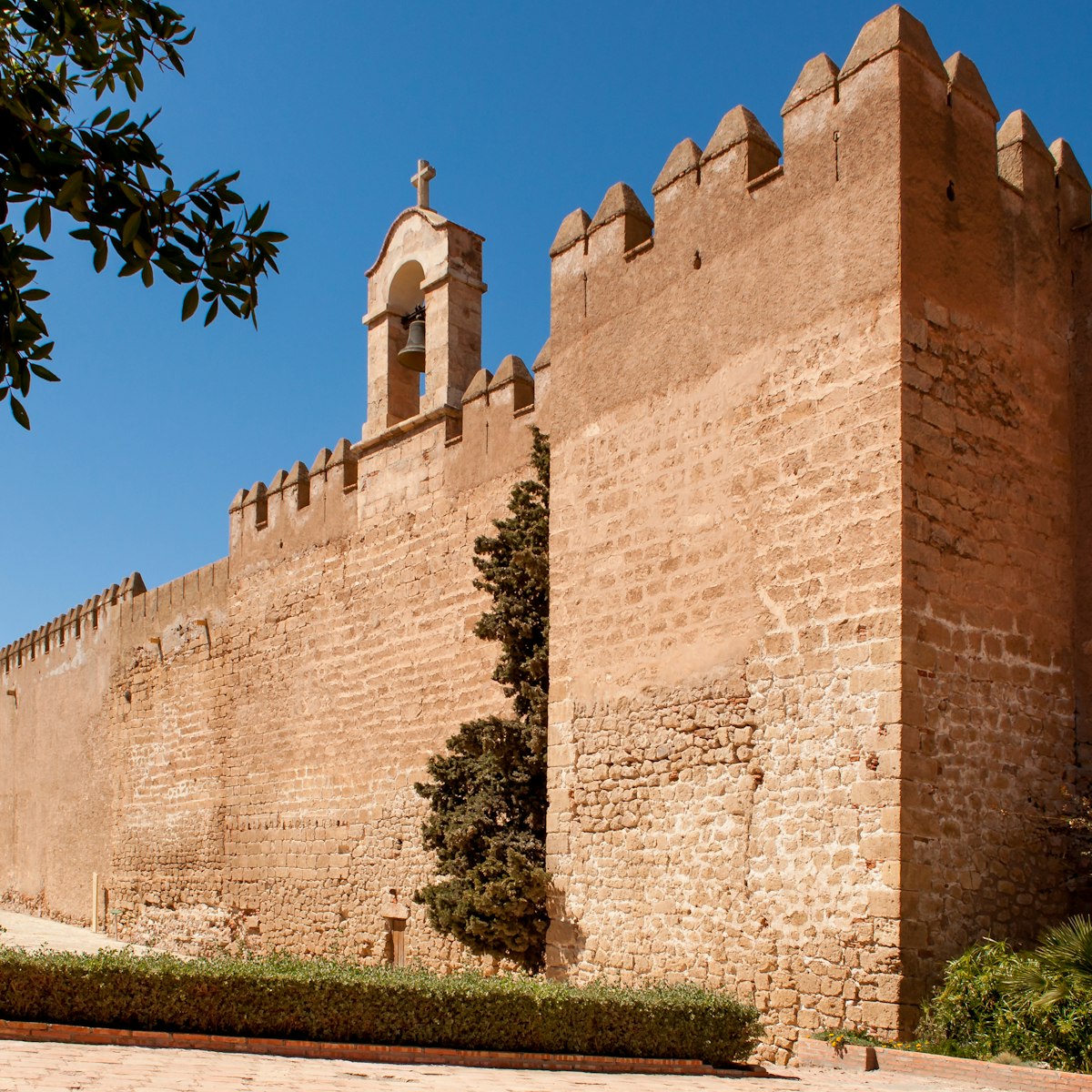A looming fortification with great curtain-like walls rising from the cliffs, Almerìa's Alcazaba was founded in the mid-10th century and went on to become one of the most powerful Moorish fortresses in Spain. It's survived in good shape and while it lacks the intricate decoration of Granada's Alhambra, it's still a magnificent sight. Allow about 1½ hours to explore everything. Pick up a guide leaflet at the kiosk inside the four-arch entrance gate.
The Alcazaba is divided into three distinct recintos (compounds). The lowest, the Primer Recinto, was residential, with houses, streets, wells, baths and other necessities – now replaced by lush gardens and water channels. From the battlements, you can look over the city's huddled rooftops and down to the Muralla de Jayrán, a fortified wall built in the 11th century to defend the outlying northern and eastern parts of the city.
Further up in the Segundo Recinto you’ll find the ruins of the Muslim rulers’ palace, built by the taifa ruler Almotacín (r 1051–91), under whom medieval Almería reached its peak, as well as a chapel, the Ermita de San Juan, which was originally a mosque. The highest section, the Tercer Recinto, is a castle added by the Catholic Monarchs.






